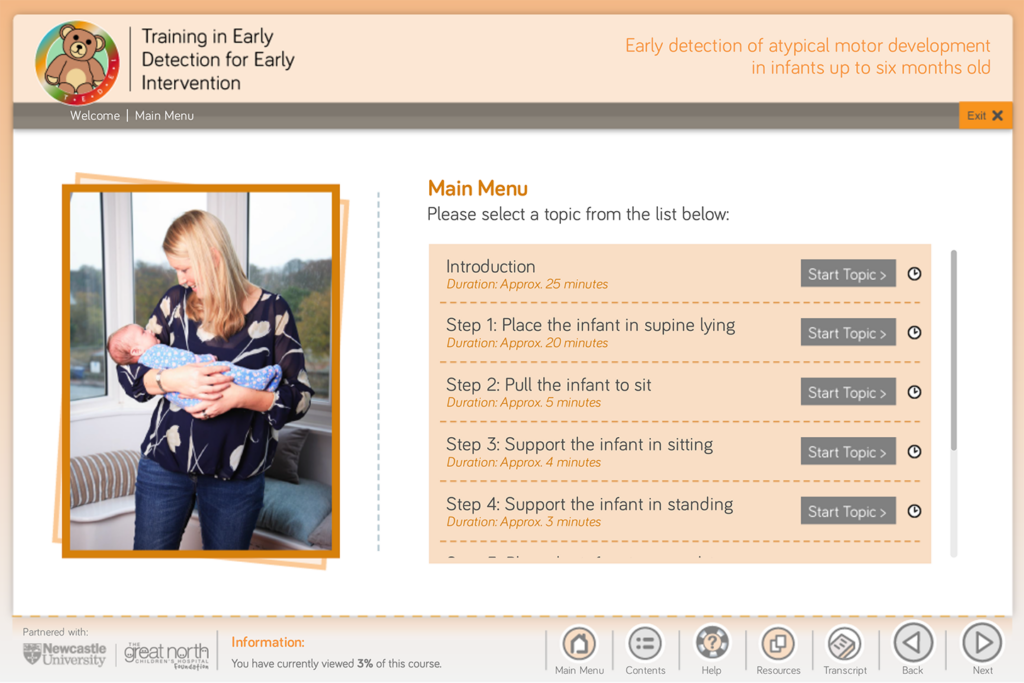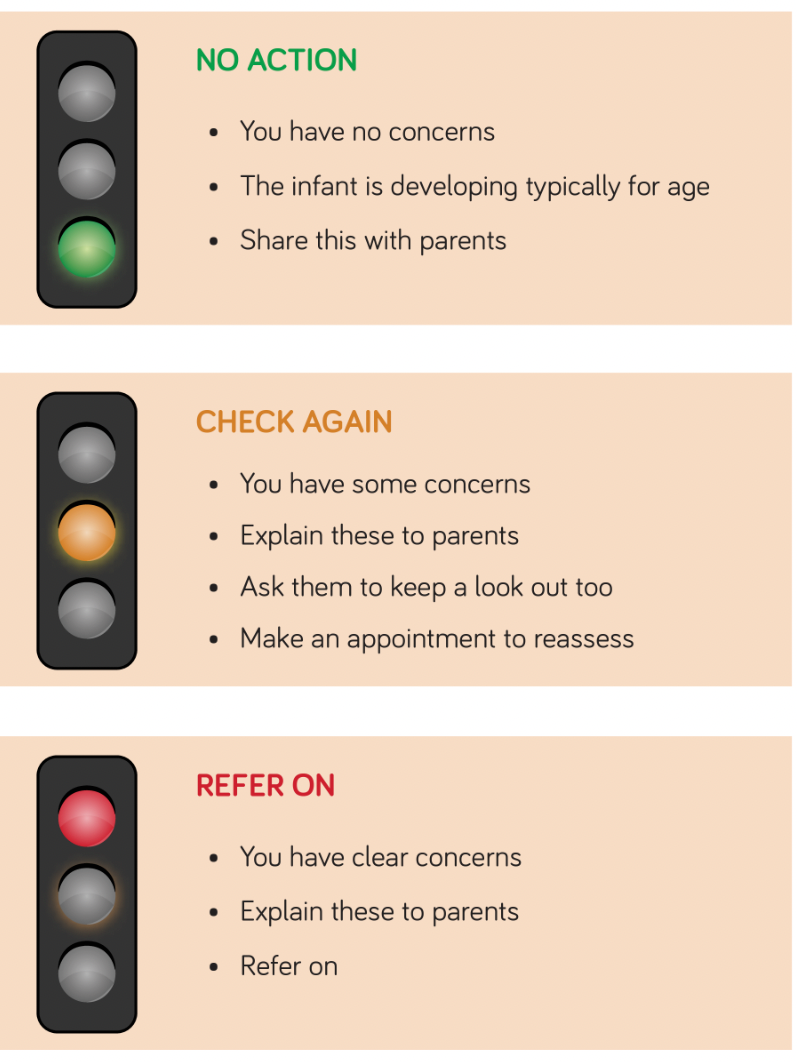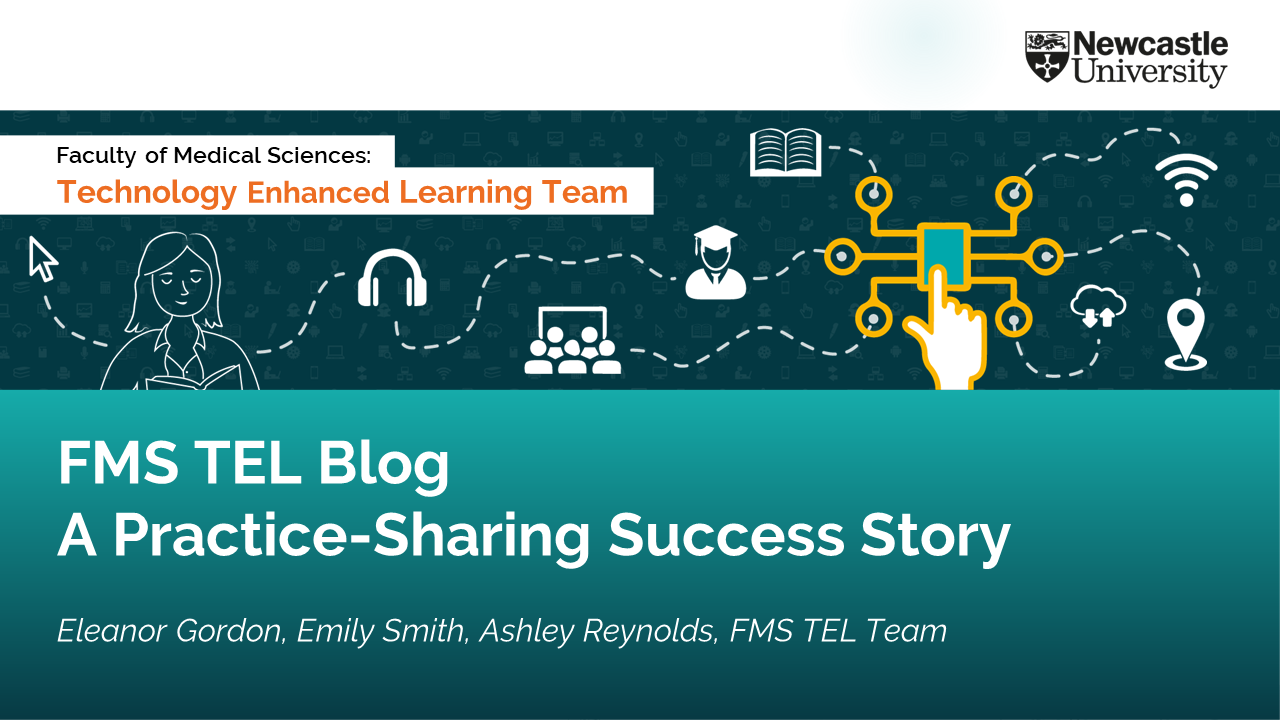A piece of research I have recently been involved in has been published in the BMC Medical Education online journal and is available to read now. It can also be accessed via the University library here.
The paper, titled ‘Evaluation of the Training in Early Detection for Early Intervention (TEDEI) e-learning course using Kirkpatrick’s method‘ focuses on the need for training of healthcare professionals in early detection of atypical motor development (cerebral palsy) in infants up to six months old.
Working in collaboration with Dr Anna Basu and Janice Pearse as Subject Matter Experts (SMEs), I developed a video-based e-learning course to address this need, with results from a pre-course and post-course quiz being analysed to evaluate whether participation in the course had improved knowledge and changed the behaviour of healthcare professionals.

The two-hour course used a Traffic Light System to both demonstrate abnormalities and also quiz users on their understanding of them, and the potential need to monitor/refer.
As demonstrated by the research, the course received positive responses from all stakeholders. Healthcare Professionals (HCPs) who have taken the course have improved their knowledge and confidence in this area, leading to better outcomes for families.
The course is available free to staff from Newcastle upon Tyne Hospitals NHS Foundation Trust. More information about the course, including access and booking, can be found on the University Website.
References
Officer, E., Johnson, M., Blickwedel, J., Reynolds, A., Pearse, R., Pearse, J. & Basu, A.P. (2023) ‘Evaluation of the Training in Early Detection for Early Intervention (TEDEI) e-learning course using Kirkpatrick’s method’, BMC medical education, 23(1), pp. 129–129.



